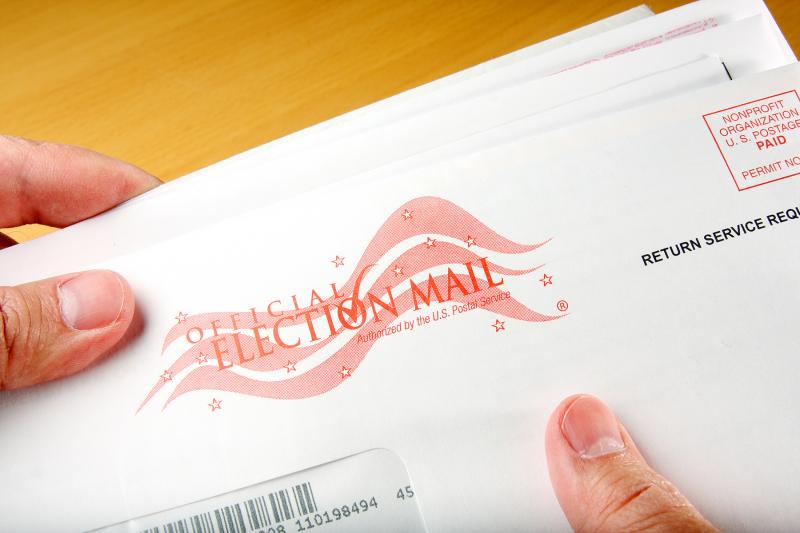Delaware’s vote-by-mail law was struck down Sept. 14 by a Chancery Court judge, who ruled that those ballots are invalid for the Nov. 8 general election.
“In light of applicable and controlling precedent, I must find that the vote-by-mail statute is unconstitutional for purposes of the general election,” wrote Vice Chancellor Nathan Cook in his 87-page decision.
In June, the Delaware Legislature passed a vote-by-mail law along party lines after failing to change the state constitution with two-thirds votes in two consecutive sessions of the General Assembly. Republican leader and attorney M. Jane Brady and Julianne Murray, a GOP candidate for attorney general, filed separate lawsuits challenging the vote-by-mail law, stating elections would be harmed by allowing unconstitutional votes to be counted.
Brady also challenged a law that allows same-day registration, which Cook upheld. He wrote that the Delaware Constitution establishes when a voter can begin registration, but does not “establish a deadline prior to which a voter cannot register.”
In reaching his vote-by-mail decision, Cook examined the constitutional statute that determines who can vote by absentee ballot in Delaware.
Cook prefaced that if he were writing on a blank slate, he would likely conclude that the statute is not prohibited under Delaware’s Constitution unless he had “clear and convincing evidence of an express or implied prohibition in the constitution, and that is a very high bar to clear.”
“I am not writing on a blank slate, however,” he added.
In its defense, the Department of Elections and Commissioner Anthony Albence tried to generalize the plaintiffs’ injuries by saying if everyone is harmed by an illegal vote, then no one is harmed by an illegal vote, Cook wrote.
“When made by the Department of Elections, this argument is, at best, ironic. From a standing standpoint, it makes little sense,” Cook wrote.
Cook also disagreed with a characterization of the plaintiffs as mere intermeddlers. “They are voters, a political candidate and an election official. They represent various groups directly affected by these laws,” he wrote.
In a statement released following the court’s decision, Murray said she represented a Republican, a Democrat and an unaffiliated voter in her lawsuit, each from one of Delaware’s three counties.
“This is significant because the suit was filed for all Delawareans and was not intended to be one party against the other party. At the end of the day, this affects everyone in Delaware regardless of their political persuasion. It is important to defend the Delaware Constitution,” said Murray. “During the floor debates in both houses, members of the General Assembly said that, despite testimony that the statute is unconstitutional, they were going to pass the law and let it be sorted out in the courts. Well, it has now been sorted out.”
Brady also applauded the court decision.
“Today is a victory for the law. To change the provisions in our state constitution requires that the same new law be passed by the General Assembly over two consecutive legislative sessions with a supermajority. When the Democrats could not get the votes to do that, they attempted to change the law by passing a statute in the General Assembly in one session with a simple majority,” Brady said.
In ruling vote-by-mail unconstitutional, Cook placed an injunction on vote-by-mail ballots, which were to be mailed out starting Oct. 10 for the Nov. 8 election.
“Since no ballots have been distributed, [Department of Elections] will have more than sufficient time to make clear the categories of persons eligible to vote by absentee ballot,” Cook wrote.
In his conclusion, Cook said both parties shall confer and submit a proposed implementing order within two business days.
Melissa Steele is a staff writer covering the state Legislature, government and police. Her newspaper career spans more than 30 years and includes working for the Delaware State News, Burlington County Times, The News Journal, Dover Post and Milford Beacon before coming to the Cape Gazette in 2012. Her work has received numerous awards, most notably a Pulitzer Prize-adjudicated investigative piece, and a runner-up for the MDDC James S. Keat Freedom of Information Award.






















































